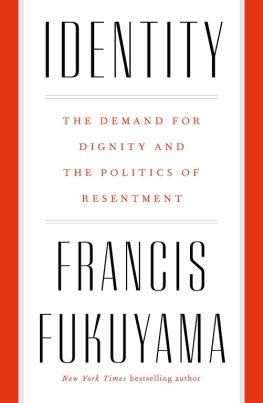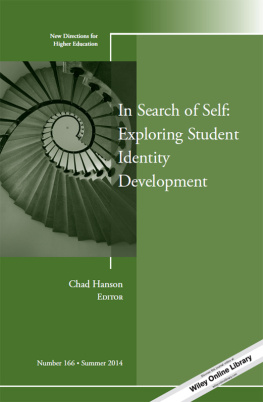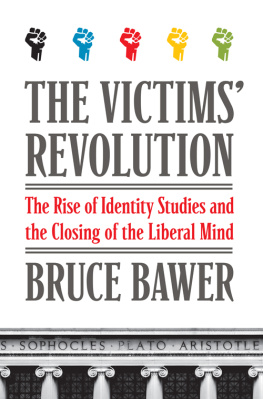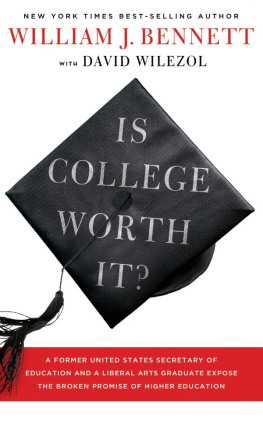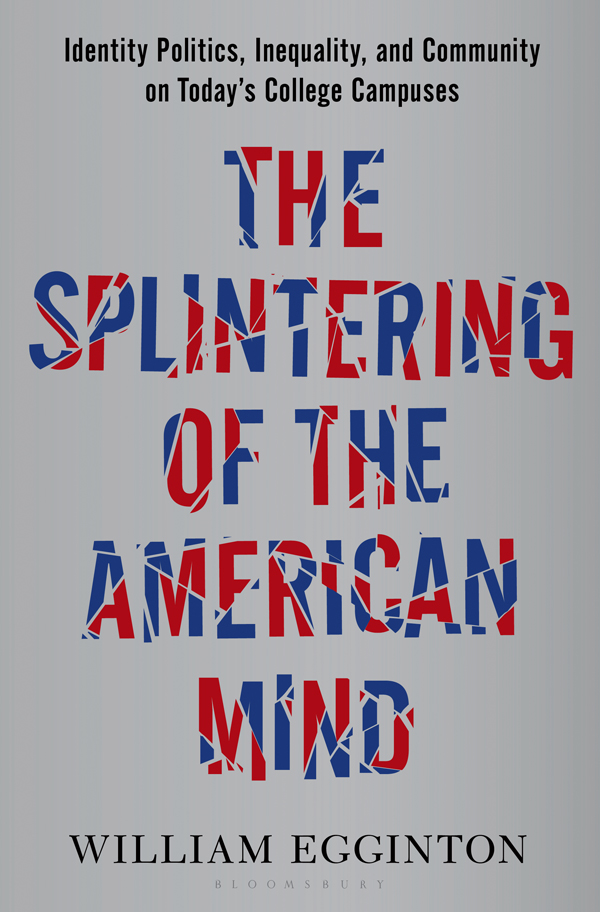Contents
Guide
Pagebreaks of the print version


This book is dedicated to Americas youth, that they may receive the education they deservenot just for their sake, but for ours.
BY THE SAME AUTHOR
The Man Who Invented Fiction: How Cervantes Ushered in the Modern World
In Defense of Religious Moderation
The Theater of Truth: The Ideology of (Neo)Baroque Aesthetics
The Philosophers Desire: Psychoanalysis, Interpretation, and Truth
A Wrinkle in History
Perversity and Ethics
How the World Became a Stage: Presence, Theatricality, and the Question of Modernity


CONTENTS
On a balmy afternoon in the spring of 2015 I found myself strolling across the idyllic campus of the University of California, Santa Barbara, the gentle breezes wafting in from its gleaming Pacific beaches only slightly marred by the faint odor from a recent oil spill. The beach where I had just been walking was abuzz in preparations for a paddle-out planned for that evening to mark the one-year anniversary of the gruesome mass killing that had terrorized the neighboring community of Isla Vista. On an evening much like this one the previous June, a young white man, isolated and resentful, had driven his BMW through town on a killing spree. In a screed posted just prior to setting off, he claimed this was his revenge on all the women he desired from afar but could never possess. As I made my way toward Isla Vista to retrieve my car I couldnt help but reflect on the vaguely incongruous scene that would take place later that evening, of dozens of candles bobbing up and down on surfboards to commemorate the victims of a hate- and desperation-fueled ballistic orgy.
My reverie was due to be interrupted by another incongruity. As I passed the outer ring of dormitories and administrative buildings that abut the campuss border with the town, I noticed that the signs around me were of a similar design and message. Each one displayed a face drawn from a rainbow coalition of bright young people. Under these portraits were testimonials mandating how the students should be addressed, what topics were permissible to discuss in their presence, and what sorts of questions one should avoid asking them, all based on the pictured students race, gender, or sexuality.
In some regards we are living in a most enlightened age, and our universities are beacons of that enlightenment. How can we not admire the social changes that have led our centers of learning to embrace the ethnic, cultural, and sexual differences that so recently in our own national history were open justifications for denigration, discrimination, and even exclusion from those very institutions? Nonetheless, on that walkfrom a beach being staged for a paddle-out to the adjacent streets where a dejected social outcast had taken his rage out by killing young studentsmy admiration for academes embrace of diversity and difference registered a momentary pall.
Did the curb I was just stepping over, a symbolic and yet totally porous border between town and gown at UCSB, also represent an equally fragile border between two worlds whose mutual distrust, antagonism, and even repulsion are tearing apart the countrys social fabric? In one corner a mostly white, sometimes rural, often male America that simmers in despair and resentment at the privilege of university-educated, coastal elites who seem ready to give every group in America a leg up except them. In the other, a cosmopolitan, educated, multicultural America that has every reason to see its embrace of racial and ethnic difference and its defense of minority rights as representing significant progress in human history. Here I was on a campus nestled among the dunes, featuring dorms with multimillion-dollar views of the Pacific, whose students paddled out on surfboards to express their outrage and grief while ensuring that newcomers be well instructed on the etiquette of gender pronouns. Was such a campus not at risk of degenerating into something like the worst caricature of its opponents opposition research?
In light of Americas evident identity crisis, what are our universities doing? Part of what made America a beacon for the worlds democracies was the explicit understanding that The Idea of a University, at raising the intellectual tone of society, at cultivating the public mind, at purifying the national taste, [and] at supplying true principles to popular enthusiasm and fixed aims to popular aspiration?
As they surveyed the decisive damage to our body politic revealed by the corrosive political correctness that, as reported in the New York Times Magazine , conjured a world of absurdist campus politics, where overprivileged students squabble over gender pronouns and the fine points of racial victimization. To be sure, every accusation of sexism or racism leveled against Trump could be read by his followers as confirmation of the liberal presss enthrallment to identity politics.
Is this story true? Are campus identity politics, by feeding into stereotypes and allowing their detractors more easily to dismiss their claims, responsible for the degeneration of political discourse? A tiny sliver of the population has soared to extremes of wealth never seen before while the wages of working families have stagnated and even declined for thirty years; is identity liberalism one of the reasons why so many of those families are unable to find common ground with constituencies that have every reason to share their concerns and desires? And are cultural politics, on campus and off, the Pyrrhic victory that lost for the left its economic and political war, or the red herring that has allowed the Republican Party to pull a generation-long bait and switch on Americas working class?
As I argue in this book, some colleges in the 1970s, by accepting and accommodating a justifiable intellectual demand for equal treatment of minority perspectives, were also encouraging the cultivation of isolated identities . And this was happening at the same time as community , the underlying theme of both the postwar economic expansion and the civil rights movement itself, was suffering debilitating attacks from both the right and the left. Conservatives undermined community by promoting small-government, free-market fundamentalism; progressives through an ever-expanding embrace of social freedoms and distrust of traditional institutional authority, which they saw as oppressive. In the face of this almost perfect storm, colleges jettisoned the defense of the social contract that the liberal arts had helped formulate, and instead exacerbated the situation by providing intellectual cover and justification for the dissolution of social bonds.
The ability of our universities to counter this cultural and intellectual shift was further compromised by the pressures of the market, ironically the very same economic trends that a resurgent right was championing. State institutions, stripped of state funding, were becoming more and more like slightly discounted private schools, raising tuitions at unprecedented rates to pay for the amenities that allow them to vie for the best students. Private schools, in turn, had no incentive to stop the exorbitant rise of their own tuitions, as they competed against one another for the best (and wealthiest) students with shiny new facilities, and climbed in the coveted U.S. News and World Report rankings by winning bidding wars over the professors with the most impressive publication records.


